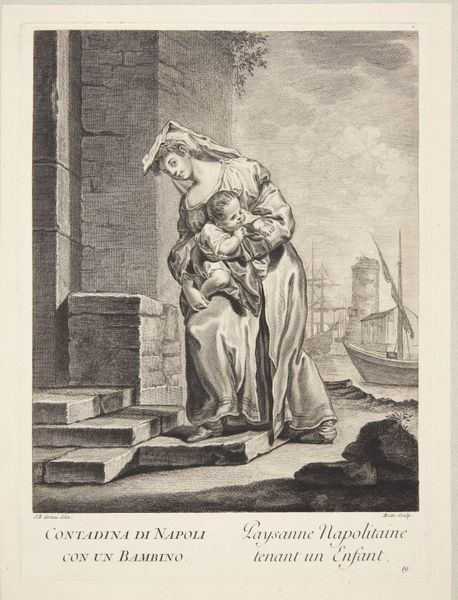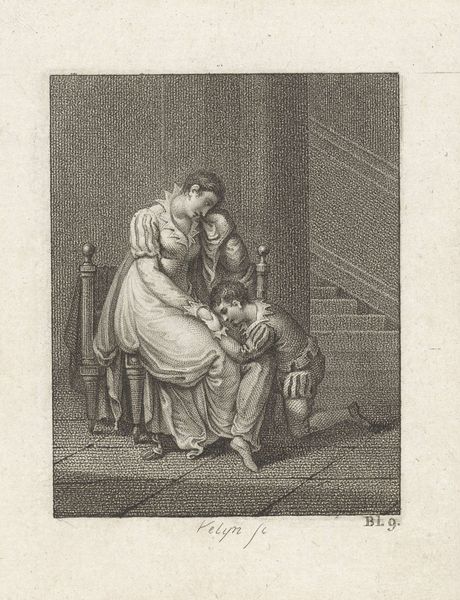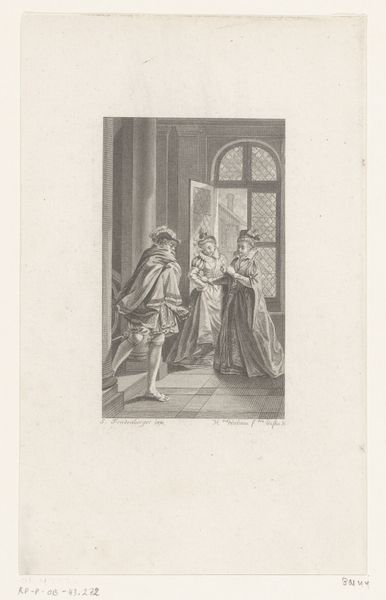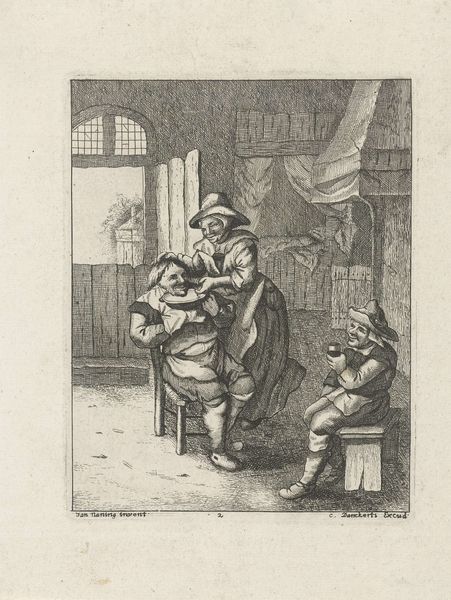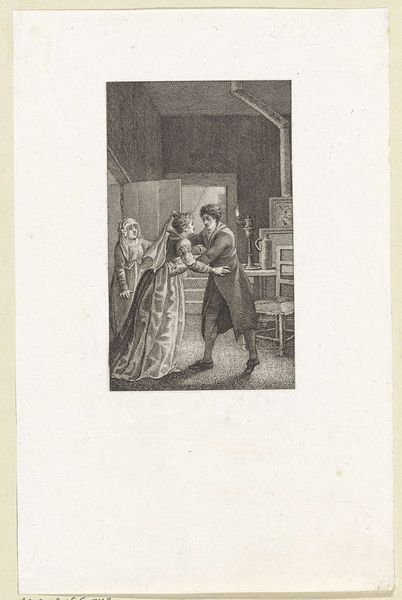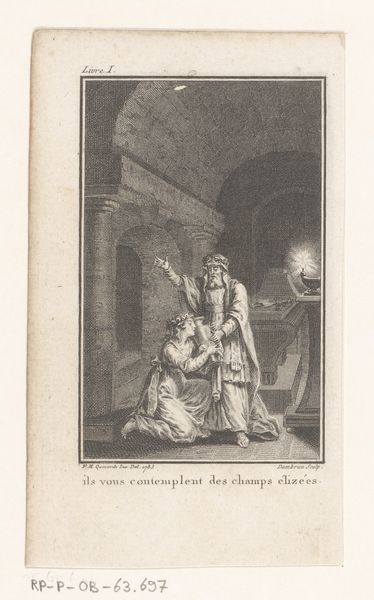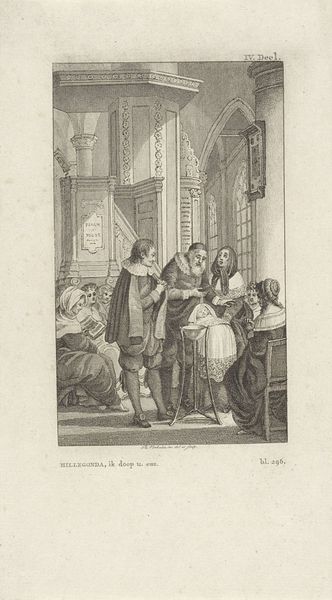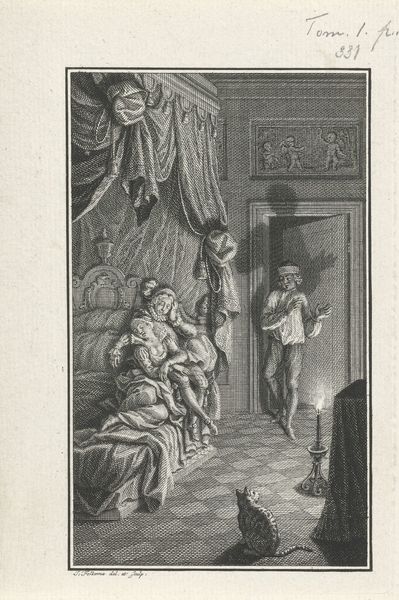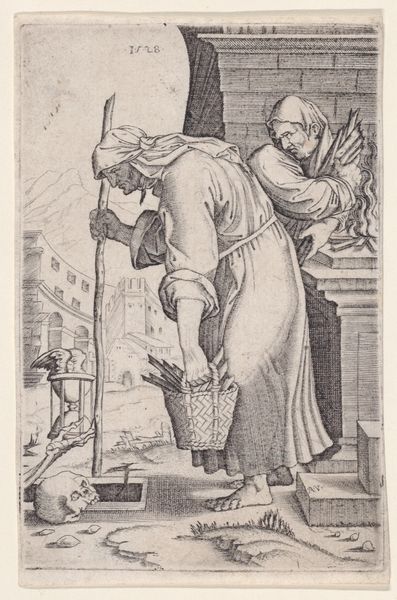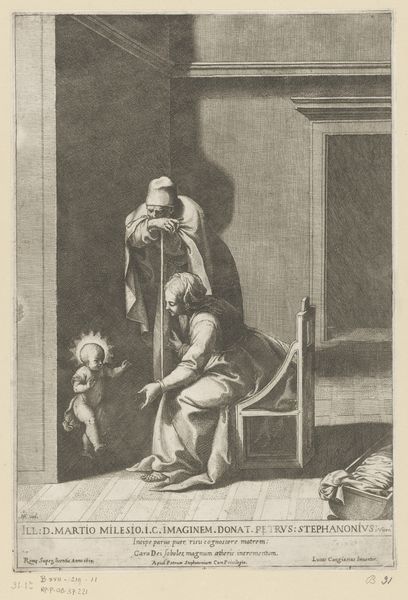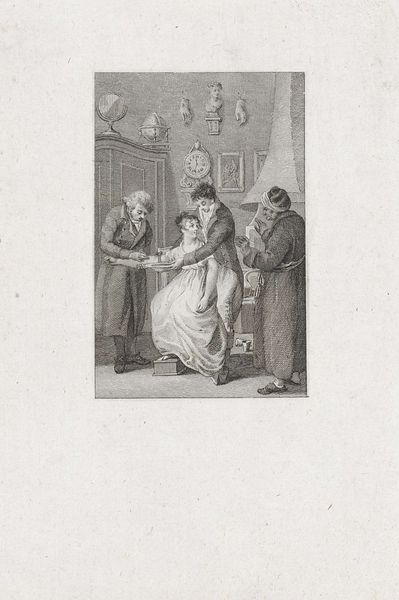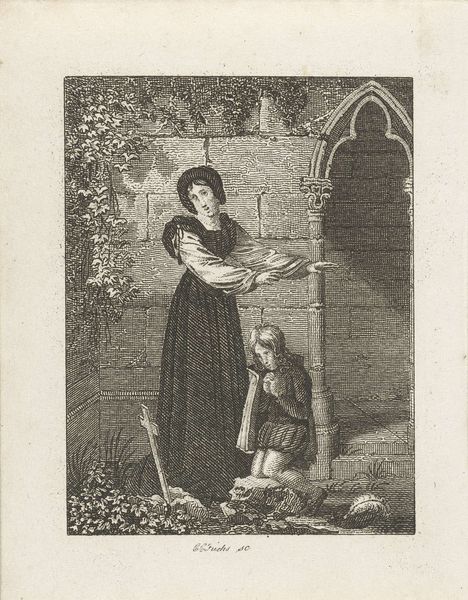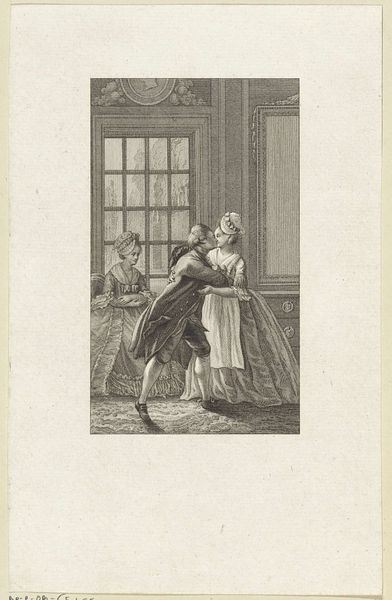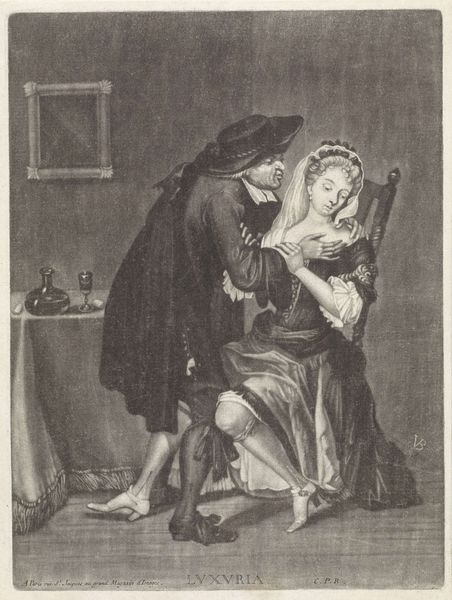
engraving
#
portrait
#
genre-painting
#
history-painting
#
engraving
#
realism
Dimensions: height 99 mm, width 71 mm
Copyright: Rijks Museum: Open Domain
This is a print made by Philippus Velijn, likely in the Netherlands, during the early 19th century. It depicts Jeanne d'Albret, a prominent figure of the French Reformation, with her son Henry de Bourbon, who would later become King Henry IV of France. The print offers an interpretation of a key moment in French history, filtered through the lens of 19th-century Dutch Protestantism. The solemn church setting and the focus on the mother-son relationship highlight the importance of religious instruction and dynastic succession. How might Dutch viewers have understood this image? Understanding this artwork requires us to consider the complex interplay of religious and political identities in 19th-century Europe. Primary source materials such as religious pamphlets, political tracts, and histories of the Reformation would shed light on the cultural significance of this image and the artist’s intended message.
Comments
No comments
Be the first to comment and join the conversation on the ultimate creative platform.
